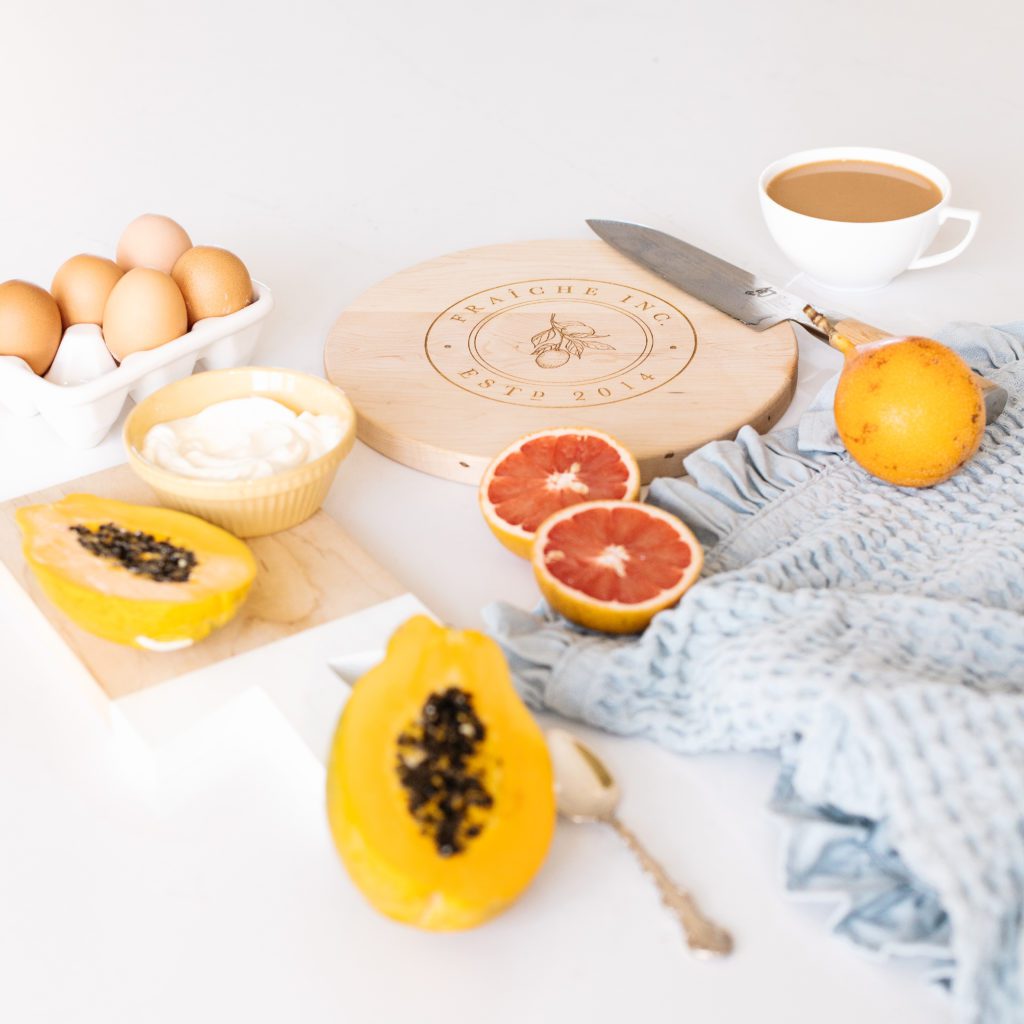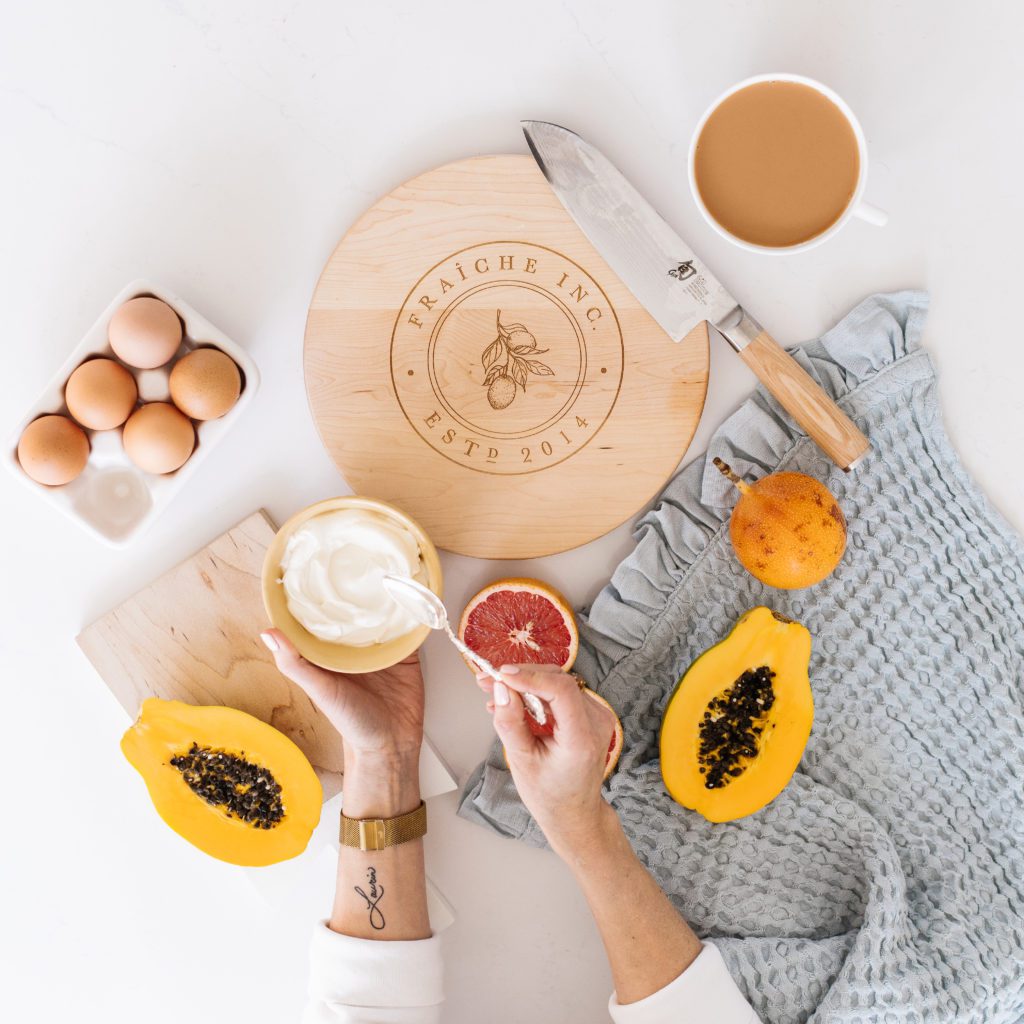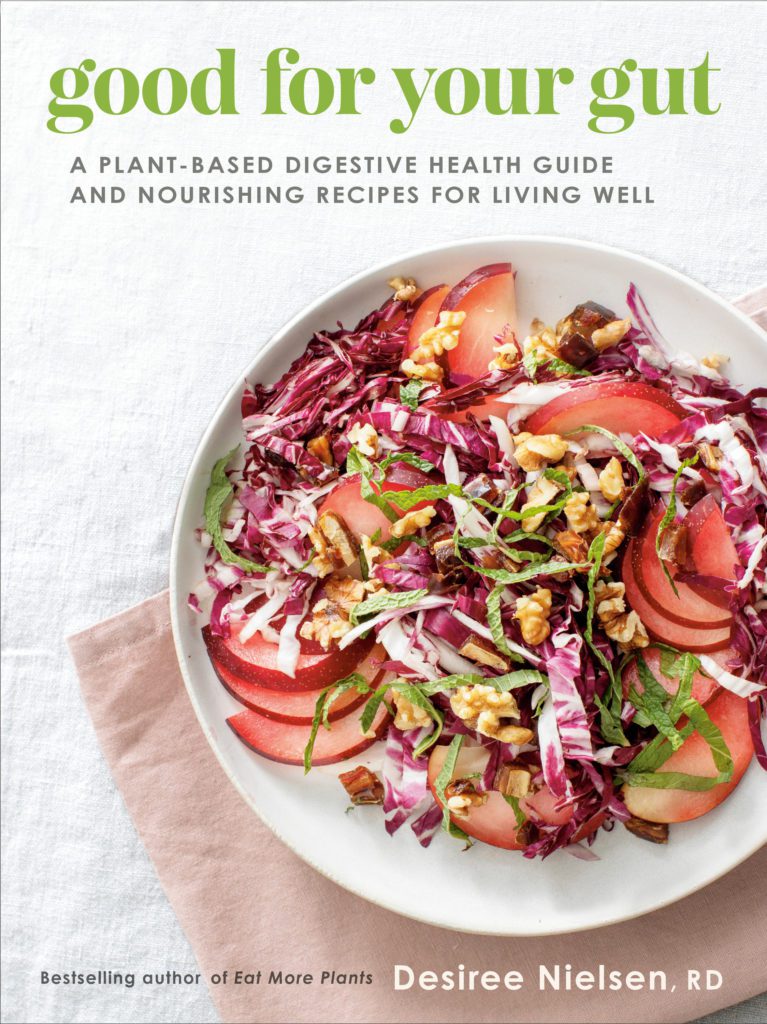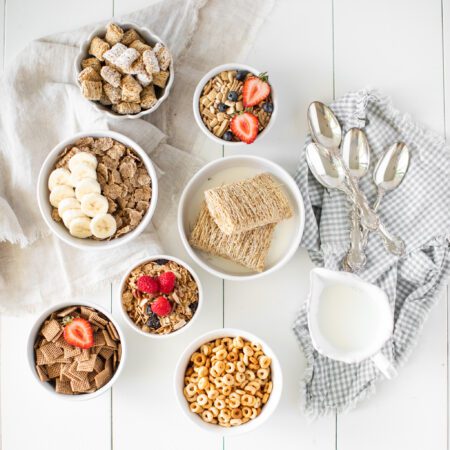Feeling bloated? You’re not alone. Dietitian Desiree Nielsen is on the blog today talking about gut health and bloating. What are some common causes, what foods to avoid, her new book and more!
Without a doubt, “Why am I bloated” is one of the most common questions I get about gut health. In one recent survey of over 70,000 Americans, over 20% had experienced bloating in the past week. But why?
If you spend enough time online, you might suspect that food intolerance is to blame…but not so fast! Before you go eliminating healthy foods from your diet, take it from a dietitian: bloating is surprisingly complex.

Hi! I’m Desiree Nielsen, a registered dietitian in Vancouver with over a decade of experience in digestive health nutrition. I’m the author of two bestselling plant-based cookbooks, including my latest, Good For Your Gut, as well as the author of the evidence-informed wellness podcast, The Allsorts Podcast.
So, let’s talk bloating: what causes it, and which foods can help or hinder digestion if you find yourself bloated.
Common Causes of Bloating
If bloating isn’t always food intolerance, what is causes it? Bloating is super complex because digestion is complex. Also, it’s worth noting that in a healthy life, a little bloating from time to time is totally normal, particularly if you have a high fibre, plant-based diet. Bloating may be related to gas production, the movement (motility) of the gut as well as a few very surprising and very common issues.
Like wearing pants that are too tight. Seriously! Sitting at a desk all day in pants with a tight waistband can compress and hinder the movement of the gut, leading to bloating. Opt for soft fabrics and loose waistbands instead.
Another super common culprit? Not chewing your food properly. Particularly with healthy plant foods such as legumes, grains and vegetables, chewing your food is a critical step in helping to break food down so that digestive acids and enzymes can attach to the food to facilitate digestion. Chew foods until they feel like a paste before swallowing.
Bloating can also be associated with a slow moving gut. This might be caused by medications, stress, or constipation. And a common thread between constipation and slow movement? Inadequate fibre intake. Lack of fibre can lead to a slow moving gut, enhancing post-meal bloating as well as constipation. In fact, sometimes, what feels like food intolerances are actually the symptoms of constipation!
We’ll talk about bloating and food choice in a moment, but it is important to note that chronic, significant bloating can also have more serious root causes such as irritable bowel syndrome, Crohn’s disease or even ovarian cancer. So if you are bloated more than just occasionally, always go see a doctor to rule out any more serious causes before crafting a plan to feel better.

Foods to Eat and Avoid for Bloating
While I want to dispel the myth that bloating is always food intolerance, of course, there are connections between what we eat and bloating. So let’s look at some common foods that may be supportive of bloating and some that may contribute to bloat.
Foods to Avoid for Bloating
- Fizzy drinks: if you, like me, love fizzy water, know that these drinks introduce gas to the digestive system which can lead to bloating.
- Refined, low fibre carbohydrates: such as white bread: as much as I love a good baguette, if you are experiencing regular bloating, make everyday swaps to get your fibre intake up slowly, over time to help improve motility.
- Smoothies: okay, smoothie fans, this doesn’t mean that you can’t enjoy your smoothies! Just sip them very slowly, trying to consume your drink over 15-20 minutes. It’s easy to drink smoothies too fast, which places a big nutrient + osmotic load on the gut, leading to bloating.
- FODMAPs : this one is just for my folks with irritable bowel syndrome! FODMAPs – fermentable carbohydrates in plant foods – help feed beneficial bacteria in the gut. Which is a good thing! However, in IBS, you may find that a temporary low FODMAP diet will help you manage your symptoms, which include bloating and loose stools.
Foods to Eat for Bloating
- Ginger: ginger is a prokinetic, meaning it helps to improve the movement of the gut. Try sipping ginger tea, eating a bit of pickled ginger or candied ginger and see if it helps.
- Peppermint: peppermint is an antispasmodic, meaning it can help relax the gut muscles which may provide relief from painful bloating (it’s an evidence-based supplement for IBS). Try brewing double strength peppermint tea.
- Psyllium or ground flax: increasing your fibre intake will help lessen bloating over time. So adding some psyllium or ground flax to your morning smoothie or oatmeal can help. Don’t forget to drink extra water!
- A more plant-based diet: without a doubt, the best thing you can do for better digestive function is to eat more whole plant foods. Slowly add more plants, such as fruits, vegetables and legumes, to your plate and allow your gut time to adjust. You have to train your gut for that plant life the same way you train your legs for a marathon! But over time, digestion will improve.
Looking for more gut health nutrition advice?
I just wrote a gut health cookbook called Good For Your Gut Cookbook – it’s a total nutrition guide for everyone from the gut-curious to those with issues like bloating or irritable bowel syndrome. It’s a full-length cookbook with over 90 plant-based recipes designed to help you Protect, Heal and Soothe your gut alongside 100 pages of information to help you learn more about how to optimize your gut health for life.








Leave a Reply